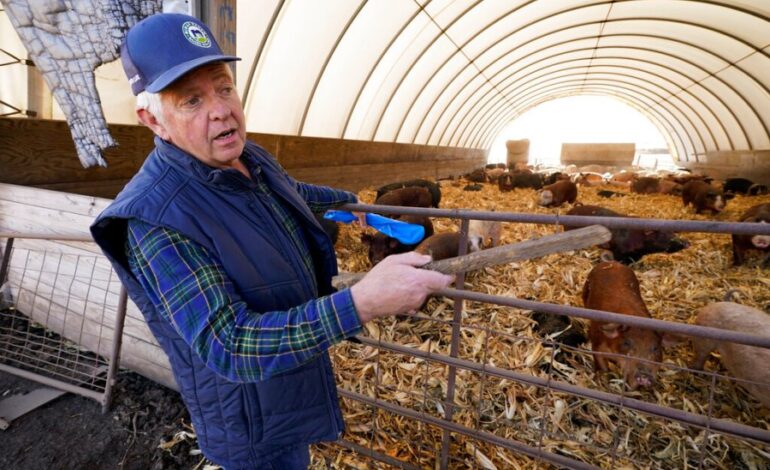Farmers Stand Firm Against Big Pork’s Challenge to Proposition 12

Farmers in California are rallying to defend Proposition 12, a law that establishes minimum space requirements for certain farm animals. This legislation aims to create a more equitable marketplace for independent family farmers while countering the influence of large corporate interests that seek to undermine state regulations.
Proposition 12, enacted in 2018, mandates that all animals sold in California must be housed in environments that meet specific space standards. The law applies to pigs, calves, and hens, ensuring that these animals are provided with adequate living conditions. This move not only aligns with growing public concern for animal welfare but also provides small farmers with a competitive edge against larger operations that typically dominate the market.
Corporate entities, particularly those associated with the pork industry, have voiced strong opposition to the law. The National Pork Producers Council has challenged Proposition 12 in court, arguing that it imposes excessive burdens on producers and violates interstate commerce laws. They assert that the law unfairly disadvantages farmers who cannot meet the stringent requirements.
Support for Family Farmers
Advocates for Proposition 12 maintain that the law is essential for ensuring fair competition. According to the California Department of Food and Agriculture, the standards set by Proposition 12 help level the playing field for smaller operations, allowing them to thrive in a market often dominated by large agricultural firms.
Family farmers argue that the regulations are crucial for their survival. For many, the ability to provide ethically raised animals not only meets consumer demand but also supports sustainable farming practices. The law is viewed as a significant step toward ensuring that small farmers can continue to operate without being overshadowed by corporate giants.
Supporters of Proposition 12 also emphasize the growing consumer preference for humane treatment of animals. Research indicates that a significant portion of California’s population is willing to pay a premium for products that adhere to ethical farming standards. This trend suggests that Proposition 12 aligns with consumer values, potentially increasing market demand for products from compliant farmers.
Legal Challenges Ahead
As the legal battle unfolds, farmers remain resolute in their commitment to uphold Proposition 12. They are prepared to engage in a protracted fight to defend the law and its implications for animal welfare and fair competition. The outcome of this dispute could have far-reaching effects on agricultural practices across the United States.
The legal challenge initiated by the National Pork Producers Council is scheduled to be heard in 2024. This case will not only determine the future of Proposition 12 but may also set a precedent for how states can regulate agricultural practices in the face of corporate opposition.
In conclusion, the clash over Proposition 12 highlights the ongoing struggle between family farmers advocating for animal welfare and corporate interests seeking to maintain control over the market. As this situation develops, the outcome will likely influence the regulatory landscape for animal agriculture, with significant implications for both farmers and consumers alike.






